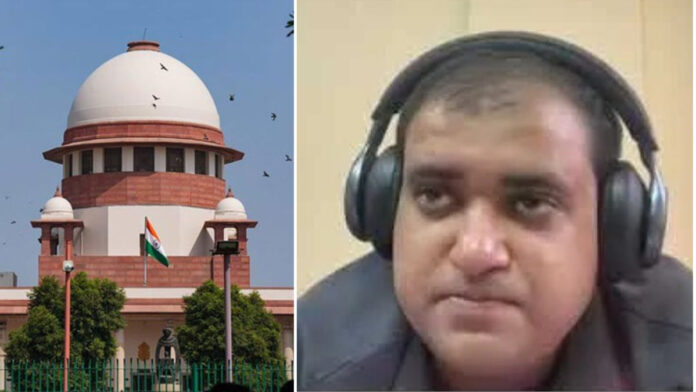SC Denies Custody To Atul Subhash’s Mother is a landmark case that highlights the complexities of child custody disputes and the legal principles governing them. The Supreme Court of India turned down the petition of Anju Devi, the mother of late techie Atul Subhash, in which she sought custody of her grandson. The court remarked that she was “virtually a stranger to the child,” pointing out that the grandson had no significant bond with his grandmother.
Supreme Court’s Rationale
The Supreme Court’s decision was based on the welfare and best interests of the child. The court asked pertinent questions, including, “When did you meet him last? He doesn’t know you at all.” These observations underscored the importance of a child’s emotional well-being and the need for continuity in their caregiving environment.
Child custody cases often hinge on the child’s familiarity and comfort with the caregiver. In this instance, the court found that Anju Devi had not been involved in her grandson’s life to a degree that would justify granting her custody. The child’s primary caregivers, likely his mother or other close relatives, were deemed better suited to meet his emotional and developmental needs.
Background Of The Case
The custody battle stems from a tragic series of events. Atul Subhash, a tech professional, reportedly died by suicide after alleging harassment by his estranged wife. His mother, Anju Devi, filed a petition seeking custody of her grandson, citing concerns about the child’s upbringing and welfare.
While the grandmother’s intentions may have been rooted in love and concern, the court highlighted that the child’s immediate environment and existing relationships took precedence. The lack of a prior bond between Anju Devi and the child was a significant factor in the court’s decision.
Legal Principles In Child Custody Cases
Indian courts have long maintained that the welfare of the child is the paramount consideration in custody disputes. This principle, rooted in the Guardians and Wards Act, 1890, and reinforced by several Supreme Court judgments, prioritizes the child’s physical, emotional, and educational needs over all other considerations.
In cases involving grandparents, the court typically examines the existing bond between the child and the grandparent, the grandparent’s ability to provide care, and the overall impact of a custody transfer on the child’s well-being. In this case, the court found that granting custody to Anju Devi would disrupt the child’s stability and comfort.
The Emotional Complexity Of Custody Disputes
Child custody disputes are often emotionally charged, involving competing claims of love, care, and responsibility. Grandparents, especially in traditional Indian families, play a vital role in a child’s upbringing. However, the legal system must balance these familial bonds with the practicalities of caregiving and the child’s best interests.
In Anju Devi’s case, her estrangement from her grandson created a significant barrier. While her desire to protect and nurture her grandchild is understandable, the court emphasized the importance of existing relationships and the child’s need for continuity in care.
The Role Of Grandparents In Modern Families
The case also brings attention to the evolving role of grandparents in Indian families. Traditionally, grandparents have been integral to a child’s upbringing, often providing emotional and moral guidance. However, with changing family dynamics, their involvement may vary depending on circumstances such as geographical distance, career commitments, and interpersonal relationships.
In custody disputes involving grandparents, the courts typically require evidence of a close and sustained relationship with the child. Anju Devi’s inability to demonstrate such a bond weakened her case, highlighting the importance of active involvement in a child’s life.
The Impact Of Parental Loss On Children
Losing a parent is a life-altering event for any child, and decisions regarding their custody must account for the emotional and psychological impact of such a loss. In this case, the child lost his father, Atul Subhash, under tragic circumstances. The court’s decision to deny custody to Anju Devi likely reflects an effort to maintain stability in the child’s life and minimize further disruptions.
Research shows that children who experience the loss of a parent benefit from consistent caregiving and familiar surroundings. Transferring custody to a relative with whom the child has little or no connection can exacerbate feelings of loss and insecurity. By prioritizing the child’s existing relationships, the court aimed to provide a sense of continuity and safety.
Legal Precedents In Similar Cases
The Supreme Court’s decision aligns with legal precedents in child custody cases. In previous judgments, the court has consistently emphasized that the child’s welfare is paramount. For instance, in the landmark case of Githa Hariharan v. Reserve Bank of India (1999), the court ruled that custody decisions must prioritize the child’s best interests over parental rights.
Similarly, in cases involving grandparents, courts have ruled in favor of those who can demonstrate a close and supportive relationship with the child. Anju Devi’s inability to meet these criteria underscores the importance of establishing and maintaining meaningful bonds with grandchildren, especially in situations where custody may become a legal issue.
Broader Implications Of The Case
This case serves as a reminder of the importance of proactive involvement in a child’s life, particularly for extended family members. Grandparents who wish to play a significant role in their grandchildren’s upbringing must cultivate strong relationships and demonstrate their ability to provide emotional and practical support.
The case also highlights the need for a nuanced approach to custody disputes, recognizing the unique dynamics of each family. While legal principles provide a framework for decision-making, the emotional realities of these cases require sensitivity and empathy.



